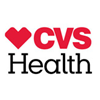Summary
We thrive at our ambulatory oncology practice because of the people and our shared dedication to provide our patients with compassionate care.
It is unique to find a position where your team members collaborate and support each other to maximize functionality across multiple disciplines.
We pride ourselves in creating the healthiest work environment possible and, as a result, we are able to achieve our ultimate goal of optimizing both patient care and patient experience.
The clinical oncology pharmacist will be part of a growing infusion center pharmacy team. In this role, they will help provide high quality direct patient care and education.
Under the general direction of the Pharmacy Manager, or their designee, the Clinical Pharmacist reviews drug therapy, formulates recommendations based on current literature and established standards of practice, directly supervises supportive personnel, serves as a resource for drug information;
participates and directly supervises the preparation and distribution of medications, and serves as a member of the healthcare team with the prescriber and direct caregiver.
Required Minimum Knowledge, Skills, and Abilities (KSAs) Education : Graduate of an ACCP accredited school / college of pharmacy is required.
License / Certifications : Pharm.D. or BS. Pharmacy from an accredited College of Pharmacy and eligible for pharmacist licensure through the Board of Pharmacy in the State of Maine.
Experience : PGY1 Pharmacy residency strongly preferred. Work experience as a patient care pharmacist involved in patient monitoring and drug therapy review is preferred.
Experience in an organized healthcare setting is preferred. Experience in the monitoring and consultation on drug therapy in patients of all age groups.
Oncology and / or infusion experience with direct patient care preferred. Excellent verbal and written communication skills are required.
Analytical skills necessary to identify and resolve problems related to drug therapy. Works collaboratively with all healthcare professionals to provide safe and cost-effective patient care.
Ensure appropriate and optimized medication therapy for patients. Provides education to other healthcare professionals including precepting trainees to enhance clinical competency on topics related to medication therapy.
Demonstrates ongoing professional development including meeting continuing education requirements, keeping abreast of current professional literature and how it relates to clinical, financial and safety outcomes.




